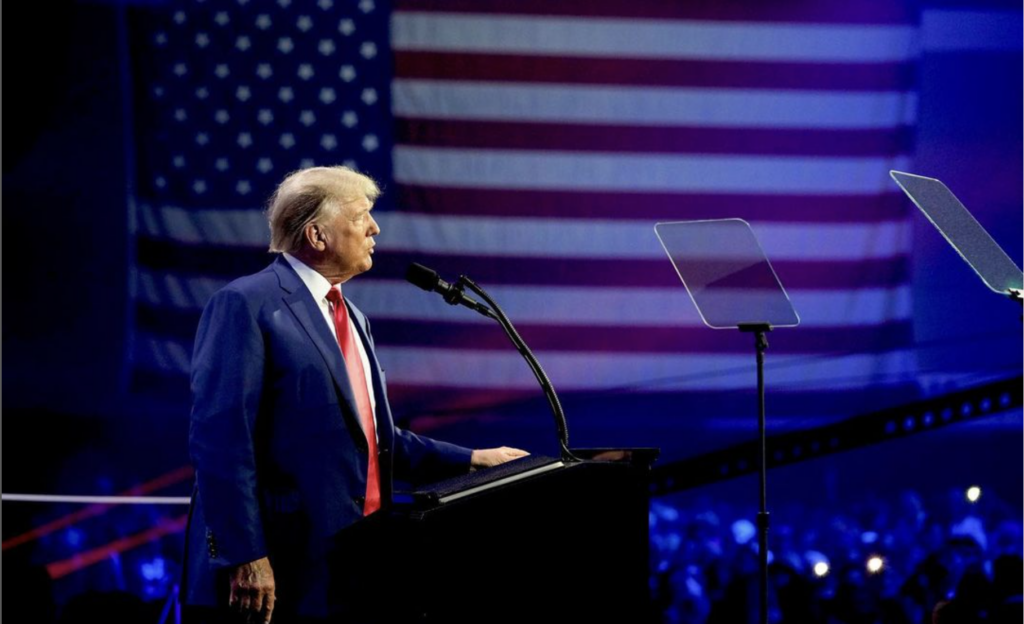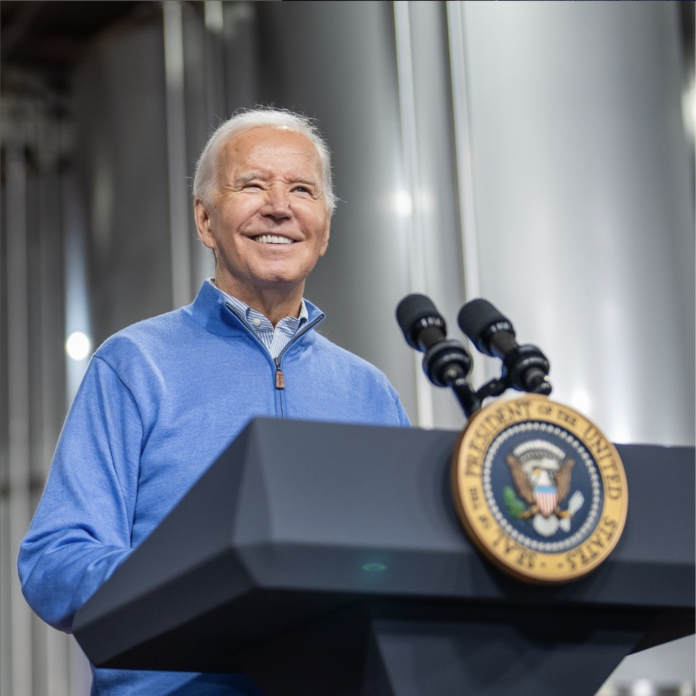The presidential election feels like it has been upon us for over a year with television ads, TikToks and podcasts discussing an election that is looking eerily similar to one from four years ago. With about nine months until the election, here’s how the current field of candidates is looking:
Joe Biden
The current President of the United States is seeking a second term. According to the 538 Project, Biden currently has a 39.8 percent approval rate. During Biden’s term, he has forgiven many Americans of student debt, seen a massive economic bounceback and passed large legislative initiatives including the Infrastructure Bill and the American Rescue Plan. He has received criticism from young voters and Arab-Americans about his support for Israel during the Israel-Hamas War and the humanitarian crisis in Gaza. The most present debate, however, is Biden’s age, as he will be the oldest president to ever hold office, ending his hypothetical second term at the age of 86.
Donald Trump
President Trump is running for President for the third time since 2016. He easily won the Republican Iowa Caucus, New Hampshire and South Carolina primaries, as well as the Nevada caucus, though it was controversial. Trump is currently enjoying the perks of being both an incumbent and an outsider, and there is little doubt when looking at his polling numbers and almost universal support among party leaders that he will be the Republican Party nominee once again. However, Trump is currently facing 91 criminal charges for four indictments: undermining the 2016 election by covering up his affair with adult film star Stormy Daniels, taking and resisting returning classified security documents, attempting to overturn the 2020 election on a federal level and attempting to overturn the 2020 election in Fulton County, Georgia. Some of these cases will begin this spring, still leaving the question of how Trump’s legal situation will affect his candidacy unanswered.

Nikki Haley
The only other candidate left in the Republican primary is Nikki Haley, a former member of the Trump administration. An Indian-American woman raised in the South, Haley gained notoriety as a Tea Party-backed candidate in her successful campaign for Governor of South Carolina. She came in third in the Iowa Caucus and second in the New Hampshire and South Carolina primaries. Haley is a conservative candidate, but has pivoted her campaign to target moderates and independents. As the race has progressed, she has become increasingly critical of Donald Trump. While statistically it is looking difficult for Haley to win enough delegates to secure the nomination, she could be waiting in the wings in case Trump is affected by his age or legal status.
Third Party Candidates
Robert F. Kennedy Jr., nephew to President John F. Kennedy and son to Robert F. Kennedy Sr. originally ran in the Democratic primary before withdrawing to run as an independent. Kennedy is known for his extreme anti-vaccine conspiracy theories. Other third-party candidates include two left wing candidates: independent candidate Cornel West, professor of philosophy, and Socialist Party candidate Claudia de la Cruz.
Looking Forward
This election may be the first major election for some students at Muhlenberg to be able to vote. President of BergVotes Kabir Burman ‘27 had this to offer to students thinking about voting in the upcoming election: “As an international student elected to be President of BergVotes, I often joke that the one student who cannot vote seems to be telling everyone else to do so. [Even so,] being situated in a swing district in a battleground state has a lot of important effects.”
“For one, your vote often has more of an outsized impact on national elections when registered to vote from such a district. You also tend to have a closer relationship with politicians and parties vying for your vote. Whether you agree with the system or not, you will undeniably have a louder voice when voting here.”
“However, with this power comes responsibility as well. With our representatives growing older and seemingly more disconnected from what young voters prioritize, it falls on us as the newest members of our democracy to help shape it. With the primaries and a major election this year, BergVotes hopes to make it easier for students to get informed, involved and registered to vote!”
The Pennsylvania primary election is Apr. 23, 2024. Election day is Nov. 5, 2024. If you have any questions about how to register to vote, go to www.pavoterservices.gov or contact BergVotes for more information.






















